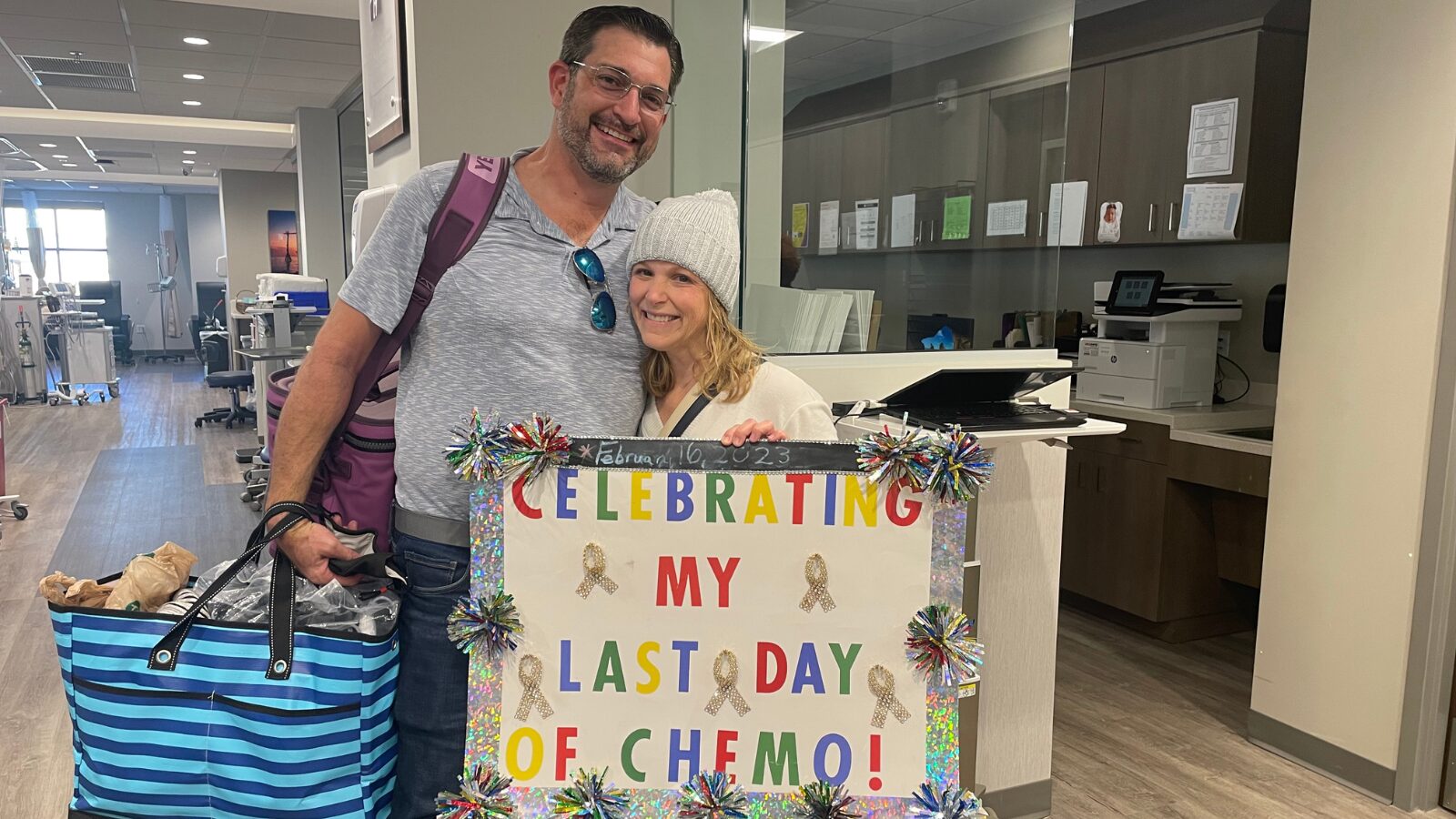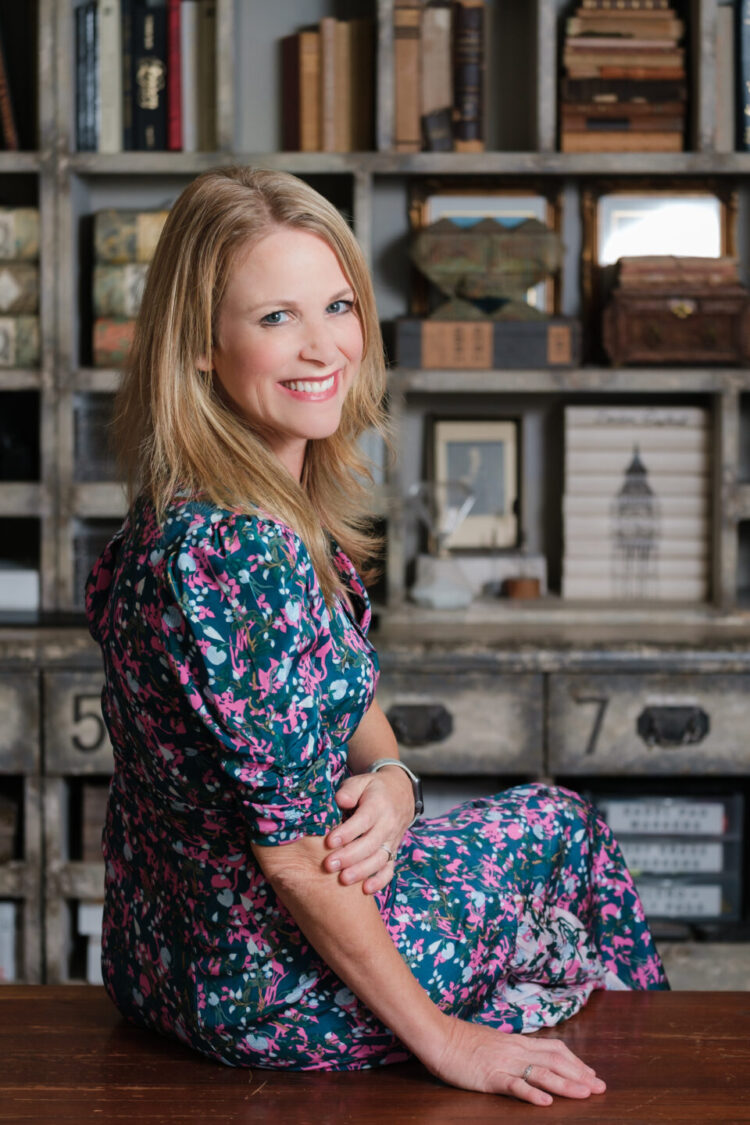The Only Way Through It Is Through It
6 MINS to read

I didn’t feel a lump.
That’s what I was thinking as I lay back on an exam table in the medical offices of Dr. Anu Saigal, one of the most well-loved surgeons in Orlando last October. I don’t have a single symptom, I told myself. This is a false alarm.
The problem was that I didn’t believe myself. Sometimes, the voice in your head is lying, whispering the things you need to hear, in order to protect you. And in that moment, on that table, I needed to hear that things would be fine, because Dr. Saigal was standing over me with a thin, hollow needle, telling me that this biopsy would only be a bit uncomfortable, and that soon we’d know more.
The tears were coming anyhow, though, despite the insistent voice in my head. I was 43. I had a six-year-old son I loved more than anything in the world. I had a job that I loved as a novelist; I was working on developing a television series; I was supposed to take a trip later that month with my son and husband. I didn’t have time for cancer.
You don’t have cancer, I told myself. It’s just a benign cyst.
“Kristin,” Dr. Saigal said gently as she finished taking a few needle samples of the abnormality that had been spotted on my mammogram a week before, a small lump the size and shape of a pea, nestled deep inside my right breast. “Whatever happens, we’ll deal with it together. I promise. It’s going to be okay.”
I could hear it in her voice then, the knowledge that I’d need that comfort very soon. But I wasn’t ready to admit it yet. “But it could be nothing, right?”
She’d nodded as I pulled my shirt on, a bruise already blooming where she’d taken pieces of me away. “I’ll call you as soon as the results are back.”
I think I knew before I answered the phone the following Tuesday. Dr. Saigal’s number came up on my caller ID around 6 o’clock in the evening, an hour past the time that doctors call with good news. “It’s cancer, but Kristin, I believe it’s only stage one,” she said immediately, her tone firm and comforting as I began to weep. “We’re going to get you scheduled for surgery to take it out as soon as possible.”
The next few weeks were a flurry. Scans and appointments and more scans. Calls to my health insurance company. Conversations with my literary agent and editor about book deadlines. Hard conversations with my son, who was too young to understand. A surgery to remove the lump, a meeting with a radiation oncologist. And then news I’d been hoping not to hear: the cancer was more aggressive than we’d initially thought, and though it was only stage 1, I’d need to have both chemotherapy and radiation therapy to reduce the chances of recurrence and metastasis.
My first chemotherapy treatment was on December 15. By Christmas Day, my hair had already begun to fall out, though I was using a cooling cap that would ultimately save more than 50% of it. It had been a whirlwind, and as I barreled into the new year, and into my second chemotherapy infusion on January 5, I had a sudden realization: Dr. Saigal had been right. I’d gotten terrible news—cancer where there should have been none, and a form aggressive enough to require chemo—and I was still standing. It wasn’t just that I was going to be okay. It was that I already was. And I think on some level, I had been writing myself into that realization for more than a decade before my diagnosis.
I write novels about characters facing times more difficult than they could have imagined, from Eva, who becomes a part of the French Resistance in The Book of Lost Names, to Elise, who loses her daughter in a bombing in World War II and must find a way to go on in The Paris Daughter. In each of my books, dating back to 2012’s The Sweetness of Forgetting, I’ve created women who, during one of the darkest times in modern history, found their light within.
And now it was my turn to walk through a valley, to find myself in darkness, to wonder whether I could find my way to the other side. I was terrified, just as my characters were, and like them, I couldn’t say for certain that I would survive.
But I’m still here. I weathered chemotherapy and four weeks of daily radiation. I put one foot in front of the other, and I walked out of the fire, forever changed.
Going to get a mammogram is unsettling. Finding a lump is scary. Being told you have cancer is terrifying. But that’s only the beginning of the story.
The rest of the story is the one you write yourself, the one where you emerge stronger, with a better sense of who you are and what you’re capable of, and with a deeper appreciation of how lucky you are simply to be alive. I think that’s true of any major challenge we face in life. We’ll all endure things that shake us to the core, but it’s what we do with those difficult times that matters.
My husband put up a sign in the garage as I was beginning chemotherapy treatments that said, The Only Way Through It Is Through It. Those are words I lived by during treatment, and that I continue to live by now. Life is going to throw us some curveballs, but we must keep moving forward, regardless of what comes our way.
It is only in our darkest hours that we realize how strong we really are.
Kristin Harmel is the New York Times and Globe & Mail bestselling author of The Paris Daughter, The Book of Lost Names, and more than a dozen other novels that have been translated into more than 30 languages and are sold all over the world. She is also the co-founder and co-host of the weekly web show Friends & Fiction. Visit her at KristinHarmel.com, or find out more about her breast cancer journey here. • @kristinharmel
Rethink is grateful Kristin Harmel is part of our author features for Turning the Page on Cancer in support of Rethink’s MBC Fund! Learn more and get involved too, here.
